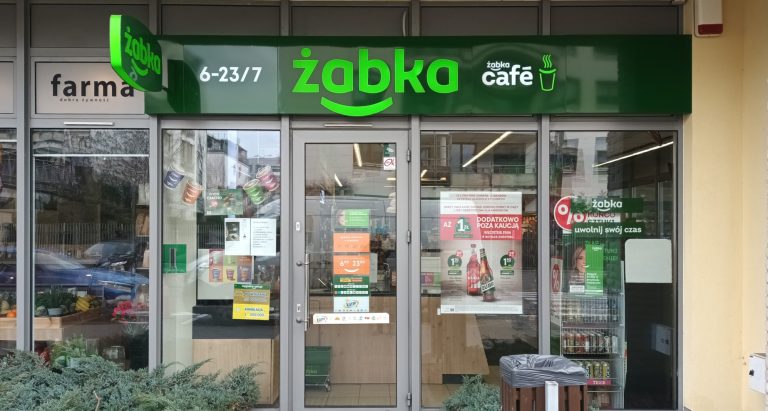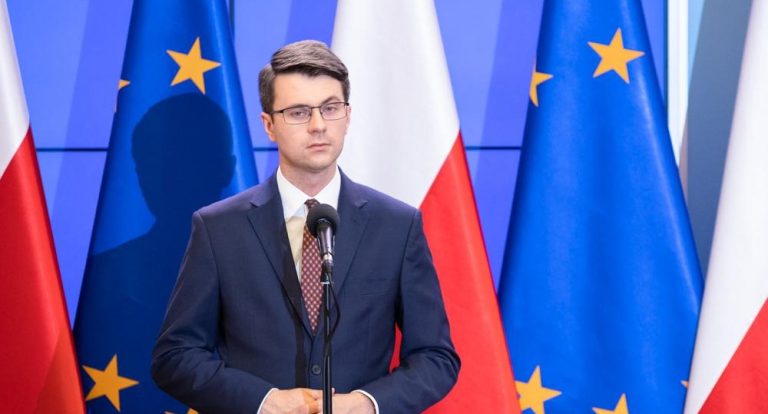Facebook ordered to stop showing scam ads featuring Polish TV star

Poland’s data protection authority has ordered Meta, the owner of Facebook and Instagram, to stop displaying adverts featuring a Polish TV presenter after she complained about the use of her name and image in fake reports of her death used to promote scams.
If Meta breaches the three-month ban, the Data Protection Office (UODO) could fine it up 4% of its global annual revenue.
“This precedent-setting decision is a huge step forward and proof you can win against a giant!” wrote Omenaa Mensah, who is known for hosting programmes on TVN, Poland’s largest private broadcaster, as well as for charitable activities she carries out with her husband, Rafał Brzoska, one of Poland’s richest people.
“The law works and also applies to large corporations like Meta, which benefits financially from advertising with my image…[but] will 1723655639 be responsible for the ads they accept for display,” added Mensah.
According to UODO, Mensah has identified 263 ads spreading fake news of her death, of her being beaten by her husband, or that she had been sent to prison.
“Every day, friends send me more screenshots of ads with information about my death, and Meta threw up its hands with impunity,” said Mensah.
UODO has now ordered Meta to stop showing such adverts on Facebook and Instagram to internet users in Poland for three months. It did so using a provision of the EU’s General Data Protection Regulation (GDPR).
“Publicly identifiable individuals, whose real data is readily available, can be cruelly exploited by cybercriminals,” said UODO’s president, Mirosław Wróblewski. “Recognising that there was an urgent need to protect the complainant’s privacy and freedom, I have decided to issue this order.”
Sorry to interrupt your reading. The article continues below.
Notes from Poland is run by a small editorial team and published by an independent, non-profit foundation that is funded through donations from our readers. We cannot do what we do without your support.
Mensah herself said that the fake news about her appearing online had “a severe impact on my life and mental health” but also “undermined confidence in me as a public figure and a charitable campaigner”.
The presenter, who was born in Poland to a Polish mother and Ghanaian father, appealed to her followers to notify her or her husband if they notice any more fraudulent ads featuring her image on Facebook or Instagram. Meta has yet to comment on the case.
OUDO has notified the European Data Protection Board about the issue. It also notes that Mensah’s complaint will be heard by the Irish authorities, as Meta’s European operations are based in Ireland. Mensah herself claims that Meta’s actions violate the EU Charter of Fundamental RIghts.
@MiroWroblewski PUODO zakazał spółce Meta publikacji fałszywych reklam z wykorzystaniem danych Omeny Mensah na terenie Polski na trzy miesiące.
Więcej: https://t.co/aUFGTjujmh
— Urząd Ochrony Danych Osobowych (@UODOgov_pl) August 8, 2024
Jakub Chlebowski, a legal adviser from a law firm specialising in data and image protection, called UODO’s decision “groundbreaking”.
“For the first time in Poland, a big tech company has been banned from displaying information with the image of an individual,” he told the Wirtualne Media news service. ”
Meta is directly threatened with liability for not complying with the ban imposed on it and will have to find a way to ensure that such ‘ads’ do not appear,” Chlebowski added, though he noted that Meta can appeal against the decision.
Online adverts featuring images of celebrities, businesses or other organisations without their consent, and often seeking to promote scams, have become increasingly widespread in recent years.
We have been made aware that an account impersonating Notes from Poland is using our name and image to promote a scam investment.
Do not follow the advertised link and please report any such posts to the social media platform on which they appear. pic.twitter.com/5b9KkPb3uV
— Notes from Poland 🇵🇱 (@notesfrompoland) July 27, 2023
Main image credit: Sandra Sobolewska via Omenaa Foundation / Wikimedia (under CC BY-SA 4.0)

Alicja Ptak is senior editor at Notes from Poland and a multimedia journalist. She previously worked for Reuters.






